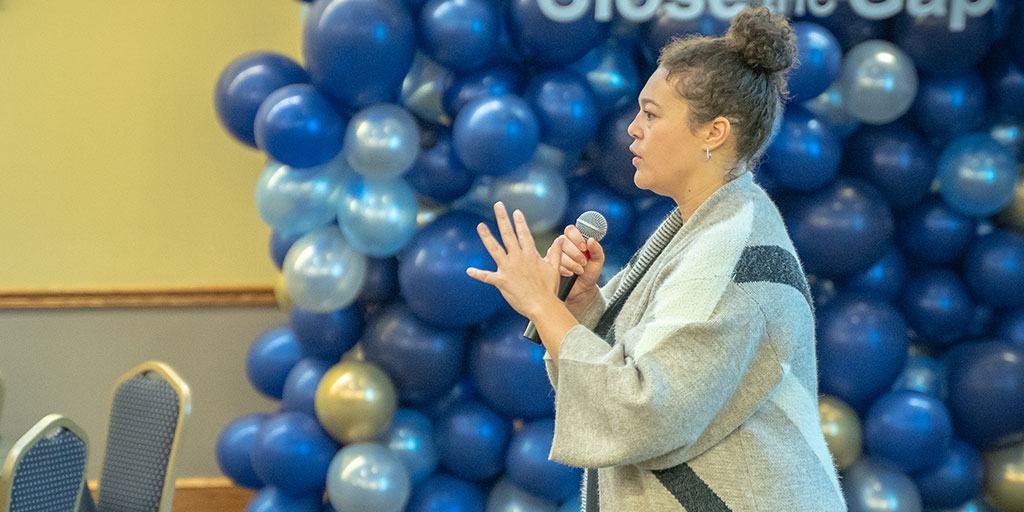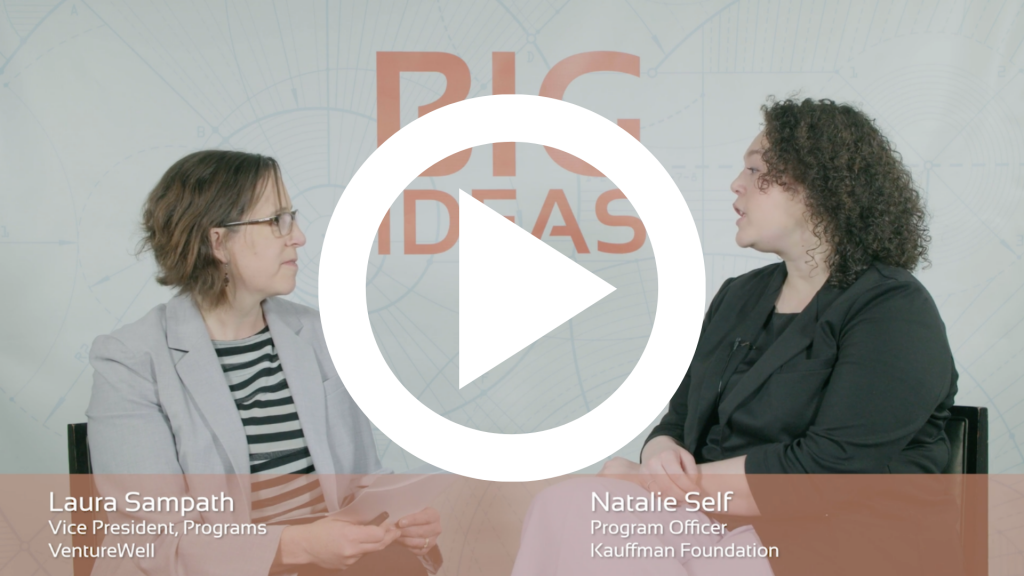
There are many regions with burgeoning startup ecosystems that have significant potential to become vibrant innovation and entrepreneurship (i&e) hubs. That potential can be realized if ecosystem collaborators provide training, guidance, and resources to the early-stage innovators working to transform impactful inventions into scalable ventures. This activity also increases the likelihood for a steady pipeline of innovations, further spurring and accelerating growth of new ventures.
As we’ve been paying close attention to trends related to regional startup ecosystems, we asked ourselves: which collaborators should be involved in the ecosystem development process? And how can these collaborators ensure ecosystems are inclusive to all entrepreneurs?
To help answer these questions, we’ve sought out others in the i&e community actively involved in supporting ecosystem development. Natalie Self is a program officer at the Ewing Marion Kauffman Foundation. Self led a panel discussion during OPEN 2019 on ways to catalyze regional entrepreneurship ecosystems.
Laura Sampath, vice president of programs at VentureWell, spoke with Self at OPEN about the role universities play in regional ecosystem development, and how they can help level the playing field for all entrepreneurs. Here’s an excerpt of their conversation.
Laura Sampath: What makes for a strong regional startup ecosystem?
Natalie Self: At the Ewing Marion Kauffman Foundation, we know that in order to have entrepreneurial success, everyone has to be involved. That’s why we focus so much on ecosystem development. The most successful entrepreneurship ecosystems are the ones that put entrepreneurs at the center. We ask them what they need to start businesses, and then deliver on that. It’s kind of simple, but it can be really difficult. If universities can bring all of their talents and abilities as conveners or as thought partners to an ecosystem conversation, that really makes a difference.
Sampath: Tell me how higher education institutions can contribute to that talent-building piece.
Self: Often we hear regions say, “We want to be the next Silicon Valley, or small New York.” What we say at the Kauffman Foundation is: just be a really great version of you. Universities can provide data and convening power about the strengths of a local economy. Find what your region is really good at and then build on that. Universities are already plugged into that. Tapping into the university’s knowledge about the region is a great place to start.
Sampath: Can you tell me a little bit about the Kauffman Foundation’s mission and work around closing market gaps?
Self: When we talk about closing market gaps, we are talking about identifying barriers that are specific to women, people of color, other members of communities that have been systematically left behind. We’re looking at identifying specific solutions to those problems, so that entrepreneurs, regardless of who you are, have a level playing field for starting businesses. We want entrepreneurship to be competitive. There are good things about entrepreneurship being competitive, but we want to make sure that entrepreneurs are facing barriers that are in the economy, and not because of who they are.
Sampath: Are there ways that higher education institutions can help with that effort?
Self: 100%. Higher education institutions are critical to closing market gaps. In large part, because they have such a wide reach. Whether it’s the students that they’re working with, empowering them with entrepreneurial mindsets and skills and confidence, or just disseminating lessons that we’ve learned in the field.
Two of our university grantees, The New School and Arizona State University (ASU), are both taking different approaches. The New School is embedding this work in their curriculum. ASU really used its power as a convener to put design thinking into community programs that work with individuals who have been systematically left behind.
